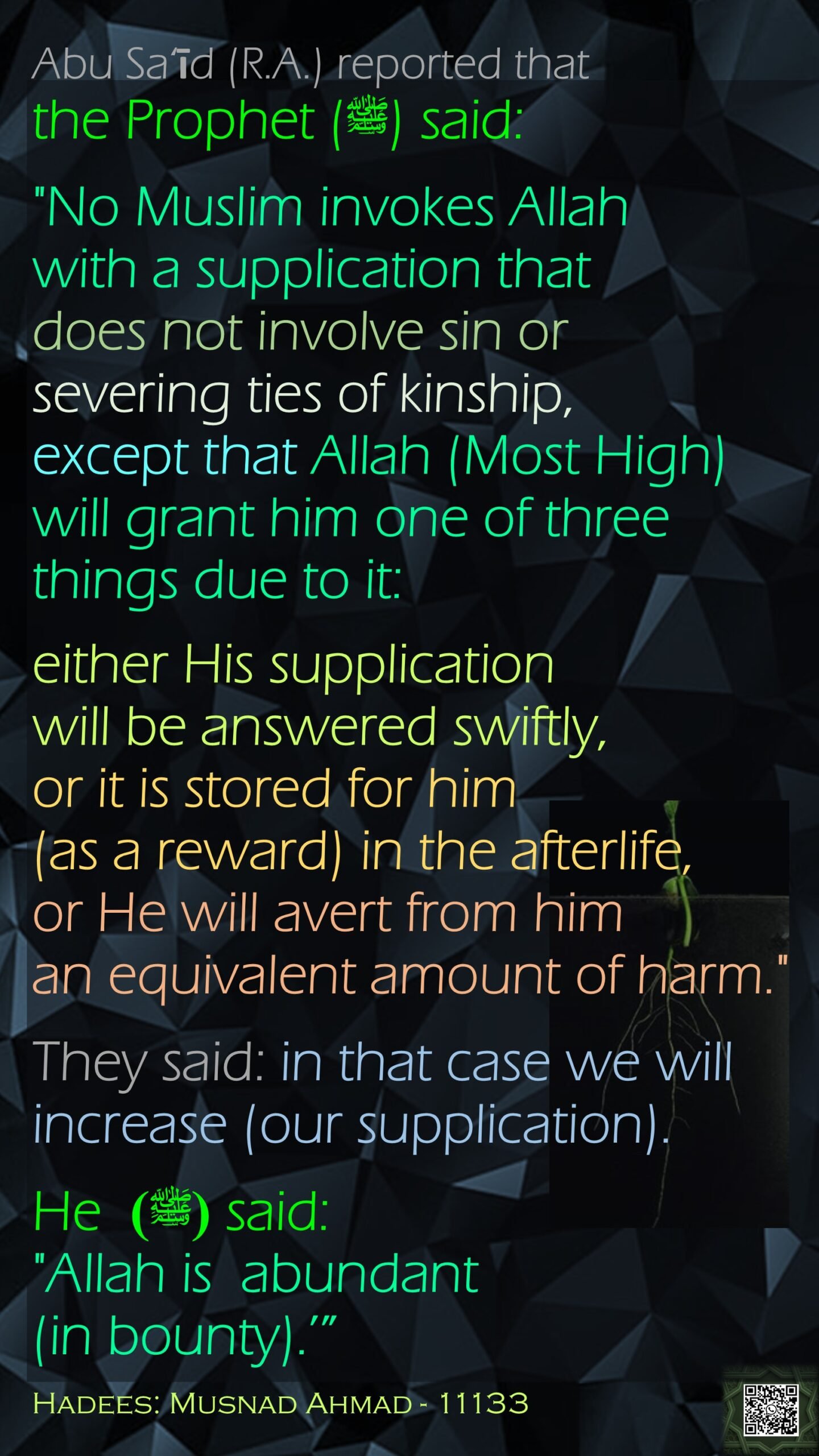24
Jun, 2025
Hadees: Musnad Ahmed 11133 (Fate of Supplications)
Hadees, Islam 11133, abundant, afterlife, ahmed, Allah, better, Bounty, daily, equivalent, grant, hadees, harm, increase, inspirations, islamic, kinship, Mercy, more, Muhammad, musnad, often, remove, reward, sin, store, supplicate, supplication, swift, three, ti
6
Oct, 2022
Quran 9:79
Uncategorized alm, Almighty, ayat, believers, Chapter 9, charity, contribute, critisize, daily, evil, inspirations, islam, islamic, less, more, painful, poor, poverty, promise, quran, ridicule, sadaqat, suffering, Surah, verse 79, voluntarily, Zakat
6
Aug, 2022
Quran 50:30~35
Islam, Quran Allah, ayat, Chapter 50, commandments, daily, desire, eternal, full, heart, hell, inspirations, islam, islamic, more, Near, paradise, peace, promise, quran, Surah, verses 30 to 35
7
May, 2022




